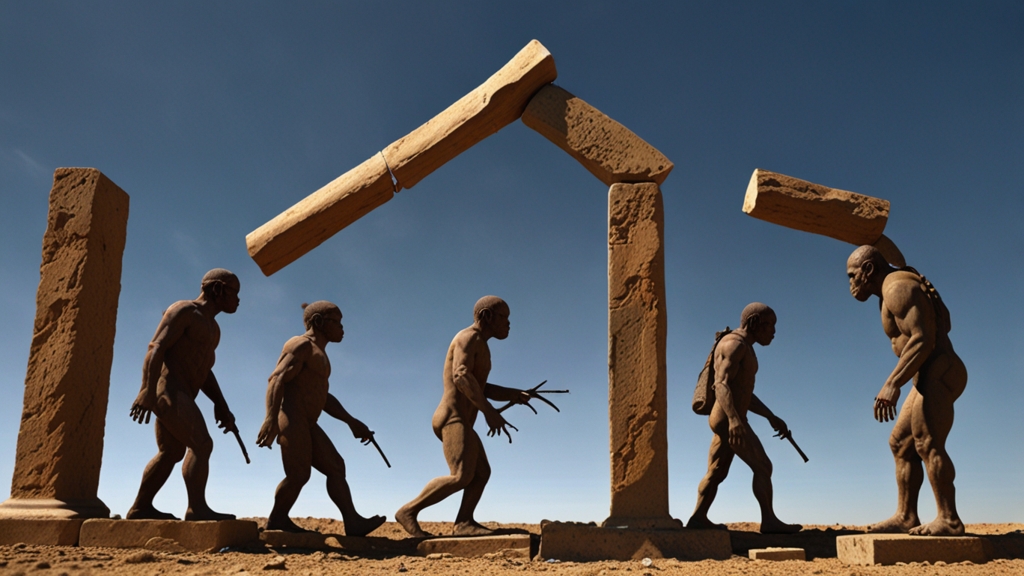The Great Library of Alexandria: Myths and Facts Behind the Lost Knowledge
Constructed in the ancient city of Alexandria, the Great Library of Alexandria stands as a symbol of human knowledge and intellectual achievement. While its grandeur is often romanticized, the true story of the library intertwines both myths and historical facts. This article delves into the myths surrounding the library and the factual aspects that continue to capture imaginations worldwide.
The Mythical Origins and Grandeur
The Great Library of Alexandria is often imagined as a colossal edifice, housing countless scrolls and texts from every corner of the ancient world. It is said to have been established during the 3rd century BCE, under the patronage of Ptolemy I Soter and his successors. The library aimed to gather all the world's knowledge and became a beacon of enlightenment in the ancient world.
A commonly perpetuated myth is that the library held over 700,000 scrolls, a staggering amounts by any standard. While these numbers are likely exaggerated, historical evidence does suggest that the library's collection was indeed vast and comprehensive, covering subjects from literature and philosophy to science and technology.
The Great Library of Alexandria was more than just a repository of books; it was a hub for scholars, attracting intellectuals from all over the Mediterranean.
The Scholars and Intellectuals
A significant part of the library's allure lies in its association with some of the most brilliant minds of the ancient world. Scholars like Eratosthenes, who calculated the Earth's circumference, Euclid, the father of geometry, and Hypatia, one of the earliest female mathematicians, were all associated with the library. Their contributions to various fields of knowledge are well-documented, testifying to the intellectual fervor that the library fostered.
However, the idea that all these figures worked simultaneously under one roof is overstated. The timelines of these intellectuals span several centuries, indicating that the library's influence persisted through different eras, rather than being a single, golden age of scholarship.
The True Nature of Its Destruction
One of the most enduring myths about the Great Library of Alexandria pertains to its dramatic destruction. Popular narratives often describe a single, catastrophic event that obliterated the library, such as the burning of ships ordered by Julius Caesar in 48 BCE, which supposedly set the library aflame. Some accounts also blame early Christians or invading Muslim armies for the library's demise.
In reality, the destruction of the library was not a singular event but rather a series of unfortunate incidents spread over several centuries. The fire during Caesar's siege likely destroyed part of the library's collection, but not all of it. Subsequent decrees, political upheavals, and changes in rulership further contributed to its decline.
It is crucial to understand that the decline of the Great Library of Alexandria was a prolonged process, marked by multiple events rather than a single, devastating occurrence.
The Lost Knowledge: A Matter of Speculation
Much has been speculated about the 'lost knowledge' of the Great Library. Some believe that invaluable texts in philosophy, science, history, and literature were irretrievably lost, setting human progress back by centuries. While it is undeniable that many works perished with the library, some knowledge did survive through copies, translations, and the preservation efforts of other contemporary libraries and scholars.
For instance, many Greek texts were later translated into Arabic during the Islamic Golden Age, ensuring their survival through another medium. While the loss was significant, it did not completely erase humankind's intellectual achievements of that time.
Conclusion
The Great Library of Alexandria remains an enduring symbol of human curiosity and intellectual ambition. While myths have amplified its grandeur and the dramatic nature of its fall, the facts reveal a more nuanced story of gradual decline and preservation amid chaos. The library's legacy, carried forward by scholars and intellectuals over centuries, continues to inspire modern institutions of learning and research.
Ultimately, the true legacy of the Great Library of Alexandria lies not only in its collection of texts but in its spirit of inquiry, which continues to spark human imagination and intellectual pursuit to this day.












